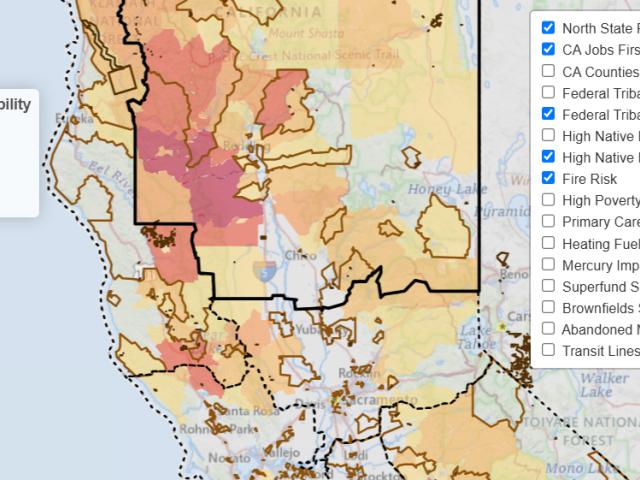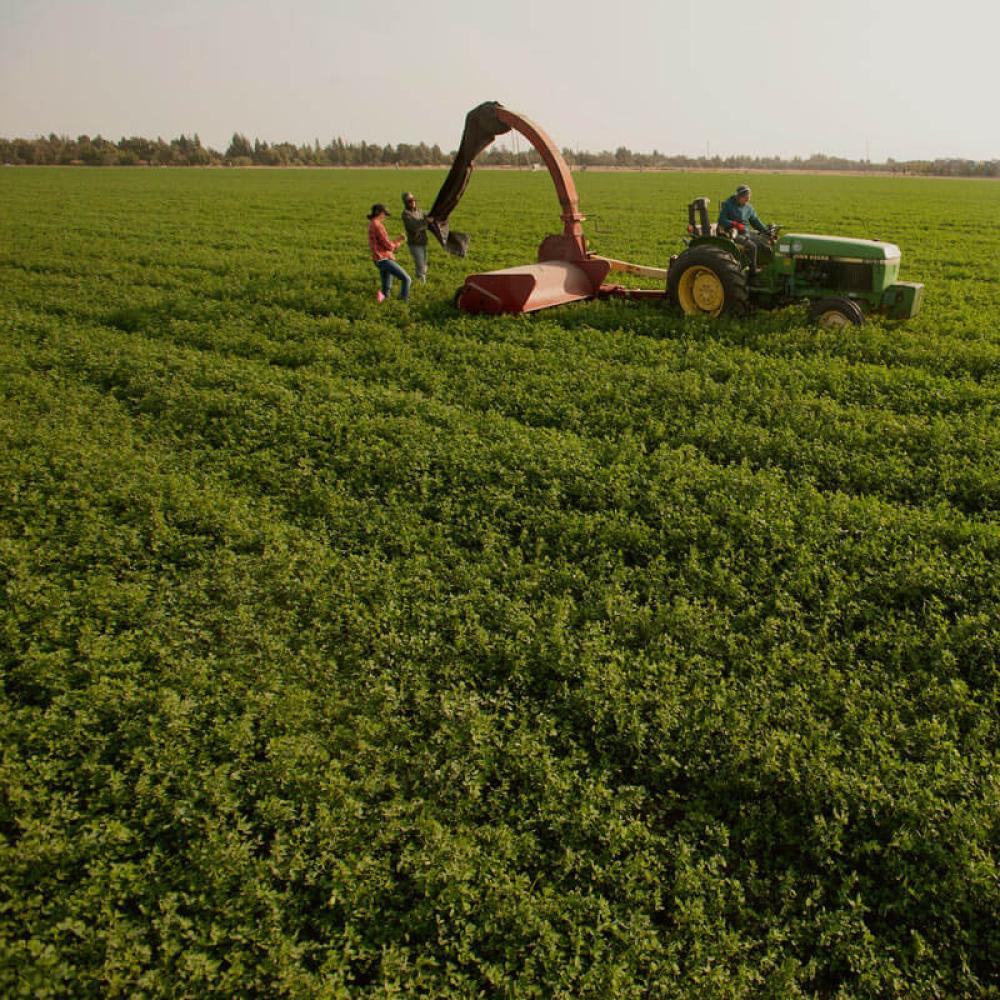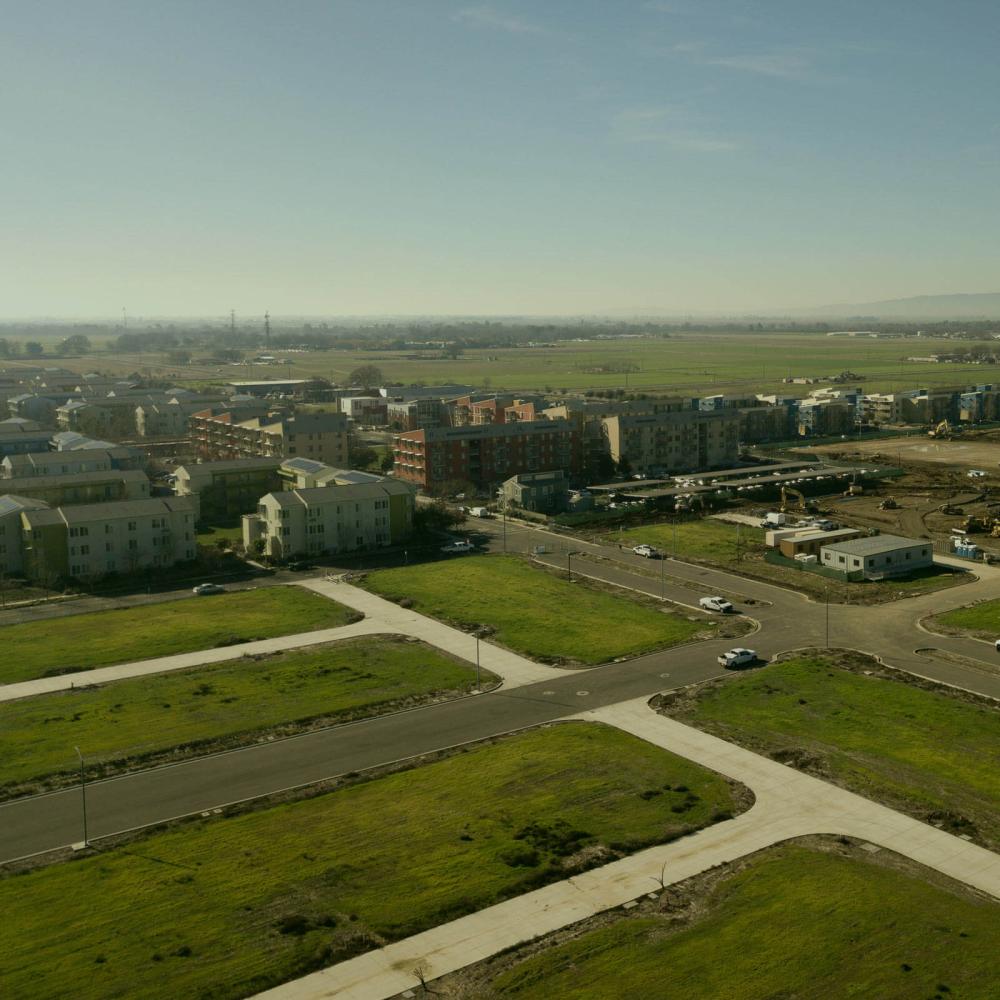Rural ECJ Program
The Sierra Institute partners with the Environmental & Climate Justice Hub to advance sustainable development in rural areas of California. By organizing community workshops and conducting capacity assessments, the Institute engages residents in economic development efforts. Additionally, they collaborate on projects for UC Davis master's students, providing hands-on learning opportunities that emphasize environmental justice. Together, they are dedicated to building resilient communities and addressing climate change challenges.
About The Sierra Institute
The Sierra Institute is dedicated to promoting healthy and sustainable forests and watersheds by supporting the well-being of diverse rural communities and enhancing their involvement in natural resource decision-making. For over 30 years, the Institute has developed integrative programs that improve environmental, economic, and community health at various levels. Their work focuses on supporting healthy ecosystems that benefit rural communities, building capacity through diverse socioeconomic programs, and fostering a stewardship ethic among youth through place-based recreation, environmental education, and career development initiatives.
About CA Jobs First - North State Region (formerly CERF)
The California Jobs First initiative in the North State region aims to cultivate a resilient and sustainable economy by promoting economic diversification and creating high-quality, equitable job opportunities for all residents. Developed in response to the economic challenges posed by COVID-19, the program supports new plans and strategies to diversify local economies and foster sustainable industries that generate accessible jobs for all Californians. The Sierra Institute for Community and Environment and the North State Planning and Development Collective serve as co-conveners for this initiative, which encompasses Butte, Glenn, Lassen, Modoc, Plumas, Shasta, Sierra, Siskiyou, Tehama, and Trinity counties.
Funder/Partner Role
The Sierra Institute was a vital partner and funder in the initiatives co-managed by the Environmental and Climate Justice Hub. Their support facilitated county-based community workshops and community capacity assessments, essential for engaging residents in rural economic development efforts. Additionally, the Sierra Institute collaborated closely with the Hub on designing student projects for UCD master’s students, creating valuable opportunities for hands-on learning and practical application of environmental justice principles. This partnership highlighted a shared commitment to fostering sustainable communities and addressing the challenges of climate change.
The Hidden Disparities Map
This interactive mapping tool illuminates hidden disparities in California's rural North State. Please be patient as it takes several seconds to load. Scroll to the bottom of the page for details about the data and the project.
https://environment.ucdavis.edu/hidden-disparities-map
Paul Ronevich and Rachel Alcala - Modoc Water Allocation
Paul Ronevich and Rachael Alcala collaborated on a project to gather local perspectives on water allocation in Modoc County. Rachael initiated the project and later handed it off to Paul after she graduated from the Environmental Policy & Management Program at UC Davis. Paul conducted interviews with residents of Modoc County and compiled their insights into a report. This report provides an overview of the watershed characteristics in the region, highlights the main concerns related to water allocation, and offers recommendations for community and policy actions to address these issues. Titled “Modoc Water Allocation: A Study in Water Concerns and Solutions in the Upper Pit River, Surprise Valley, and Tule Lake Watersheds in the Modoc County Region of California,” Paul’s report advocates for a local, watershed-focused approach to meet the water needs in the Northstate.
Sean Treacy - The New Forest Economy
Sean Treacy's work during his Environmental Policy & Management practicum focused on building a resilient forest economy through innovative wildfire resilience strategies that integrate climate action and community-centered economic growth. Collaborating with the UC Davis Environmental & Climate Justice Hub and the Sierra Institute for Community & Environment, he researched the potential of prescribed fire, sustainable timber industries, and outdoor recreation as economic strategies for California's North State. His report, "The New Forest Economy," emphasized the importance of qualitative insights from Indigenous land stewards and rural community leaders, advocating for incorporating traditional fire stewardship practices into modern forest management while highlighting the role of sustainable forest products in supporting local economies and enhancing wildfire resilience.
Alyssa Nelson & Paul Ronevich - Addressing Regional Systemic Issues with Youth
Alyssa Nelson and Paul Ronevich led youth engagement initiatives with Resources for Indian Student Education (RISE) in Alturas, CA. Collaborating closely with adult leaders within the organization, they designed workshops to connect local youth with their community and the issues it faces. The first session encouraged students to create a map highlighting areas of significance, concern, and interest in their region. In the second session, participants brainstormed strategies to systematically address some of these concerns and develop actionable plans to implement their ideas.
Mapping and Spatial Analysis on Rural ECJ (Hidden Disparities: An interactive mapping tool to illuminate hidden disparities in California's rural North State)
California’s North State Region faces unique challenges due to its rural nature, isolated and rugged terrain, and specific economic profile. To help illustrate this, a publicly available map was created to highlight critical issues related to hidden disparities in the region that may be overlooked in other maps. The goal is for this tool to assist in guiding decisions and policies in the region.




